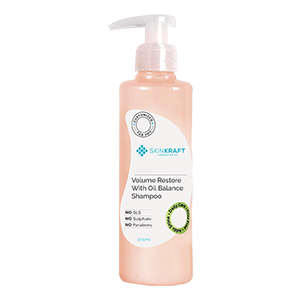Thinning hair is not a pleasant feeling, right? But what is more unpleasant is hair loss at the temples! We are sure you would second that. While this type of hair loss is more common in males, it occurs in females too. Below, you'll find the symptoms, causes and treatments for hair loss at the temples. Let's begin!
Highlights:
What Is Temple Hair Loss?
Hair loss that occurs at the side of your head, behind your eyes and between your ear and forehead is termed as hair loss on temples.
Some people experience it in their 30s, some in 40s and others in 50s. Early diagnosis of this condition makes it easy to find treatment options.
Symptoms Of Hair Loss On Temples
Hair loss beyond the usual amount (50-100 strands per day) is the most common symptom of hair loss on temples. You might see hair clogging your shower and on your hair brush along with a receding hairline.
You may also notice widow’s peak, the V-shaped hairline that commonly presents itself in men, but that can also be experienced by women [1].
What Causes Temple Hair Loss?
1. Androgenetic Alopecia
This genetic hair condition causes hair loss at temples in men and is the first sign of alopecia [2].
Androgens are a type of sex hormones that have a role in male traits and reproductive activity. DHT (Dihydrotestosterone) [3] is an androgen that is responsible for male sex charaterics like body hair.
When DHT binds to hair follicles, it can cause them to shrink and weaken. This leads to hair loss called androgenetic alopecia.
2. Female Pattern Alopecia
Androgenetic alopecia [4] in females is called female pattern baldness. Female pattern baldness can have reasons like hormones, ovarian cysts, androgen index birth control pills, menopause [5] and pregnancy.
Other causes of hair loss on temples include:
- Stress
- Tight ponytails
- Certain medications
- Smoking
- Vitamin D and B deficiencies
- Hormonal changes during pregnancy
How To Treat Hair Loss At The Temples?
Hair loss at the temples due to alopecia is genetic and hence, cannot be completely reversed. However, there are treatments that slow down this hair loss.
Minoxidil (Rogaine) [6] is a common medication available as an OTC serum. Minoxidil stimulates the hair follicles and boosts hair growth. 2% minoxidil is recommended for women, while 5% strength is recommended for men. Always buy a safe brand of minoxidil.
Massaging with oils like castor oil, coconut oil and olive oil too can improve blood circulation [7], provide nutrients to the scalp and generate new hair.
You can also turn to kitchen ingredients to promote hair growth at the temples. Here are some options:
1. How to use onion for hair growth?
- Peel and chop 1-2 medium sized onions depending on the length of your hair.
- Grind the onions in a blender and extract the juice.
- Apply the juice on your scalp, including the temples.
- Wash with a mild shampoo 30 minutes later.
2. How to use green tea for hair growth?
- Dip 1-2 green tea bags in hot water.
- Set it aside for 20 minutes for it to cool down.
- After you wash your hair, pour this green tea solution on your head.
- Let your hair soak in green tea for 3-5 minutes. Rinse with cold water.
3. How to use potato for hair growth?
- Apply potato juice on your scalp.
- Massage for 10-15 minutes.
- Rinse off with lukewarm water.
Prevention Tips For Temple Hair Loss
- Avoid any hairstyles that pull your hair back tightly.
- Reduce your stress levels with yoga, meditation or breathing exercises.
- Eat a diet rich in vitamins, protein and nutrients needed for your hair. [8]
- Stay away from styling products that produce too much heat as well as products loaded with harmful chemicals.
Wrapping Up
Seek a medical professional's help to diagnose hair loss on temples. Consider minoxidil for delaying hair loss caused due to genetic makeup. Most importantly, stay calm by adopting stress buster activities like massage and yoga.
1. https://www.ncbi.nlm.nih.gov/gtr/conditions/C1853486/
2. https://www.ncbi.nlm.nih.gov/books/NBK278957/
3. https://www.ncbi.nlm.nih.gov/pmc/articles/PMC6459338/
4. https://www.ncbi.nlm.nih.gov/pmc/articles/PMC2684510/
5. https://www.nia.nih.gov/health/what-menopause
6. https://www.ncbi.nlm.nih.gov/pmc/articles/PMC6691938/
Recommended Products
Was this Article helpful?
- Least helpful
- Most helpful











